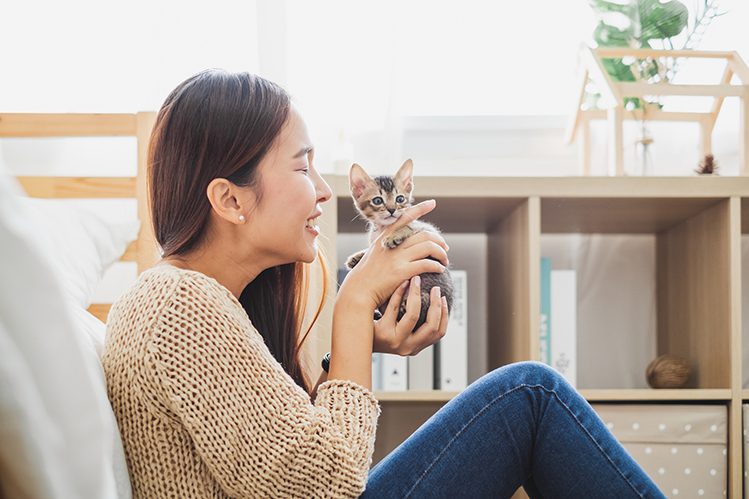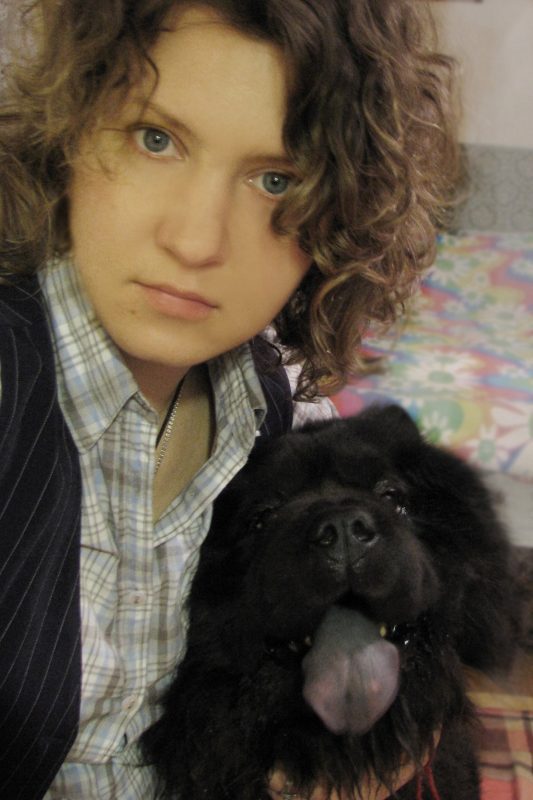
What if I get tired of my pet?
What to do if the burden of responsibility was not on the shoulder? Can I return a kitten or puppy to a breeder? And what to do if your paths with your pet diverge already at a more conscious age?
Contents
Weigh the pros and cons
You need to make a decision to get a cat or a dog with a cool head, not in any way on a wave of emotions. No matter how happy pet owners may look on a walk, you cannot know how much time, effort and money they invest in the well-being of their wards. Therefore, weigh all the pros and cons in advance.
Find and watch video lectures and videos about the pros and cons of keeping a pet at home. “10 reasons not to get a dog”, “Who should not get a cat” – usually such materials appear under such headings. Try also to find interviews and stories of real people who share their experience of dealing with relationship problems with their pets. The more opinions you hear, the easier it will be for you to form an idea of the possible difficulties. Lectures by felinologists, cynologists, veterinarians on the rules for adapting a pet to a new home will be useful.
It should be borne in mind that the appearance of a cat or dog in the house will significantly change your life. The dog needs to be walked twice in any weather, regardless of how you feel. Both dogs and cats, even well-mannered ones, can sometimes gnaw on some valuable thing out of curiosity. At the age of six or seven months, puppies and kittens begin puberty, a teenage pet shows its crazy character.
Raising a pet takes time, effort and money. Make a rough estimate of the costs of visiting the veterinarian, groomer, pet food, bowls, toys and other accessories. Think about how much you can afford to constantly provide a pet with good living conditions.
A cat or a dog can choose a favorite in the family, a pet. The one with whom they will be more willing to play, walk, to whom they will go to sleep under the side. And that person may not be you. Your pet will also love you, but a little less. Psychologically, it is better to be prepared for such a turn of events.
The saddest point is the lifespan of four-legged friends. Dogs of large and medium breeds live an average of 7-8 years. Medium breeds – 10-12, small – about 15. Cats live an average of 13 years.
Never give a pet as a “gift”. This is a living being, not a toy. A pet requires a responsible approach and the decision to get one should be made by the whole family.

And if it doesn’t work out?
It’s perfectly normal to worry about whether you and your pet will get along. It’s great if you thought about it at the stage of preparation for the acquisition of a ward. Try walking your friends dog, visit your family who has a cat. So you can try on the role of a pet owner. It will be useful to visit exhibitions.
It is not at all necessary to choose a pet at the first trip to the breeder. Play with the kids, see who makes you sympathetic, with whom you build contact. There is nothing wrong with becoming the happy owner of a puppy or kitten after, for example, three visits to the breeder. A responsible decision is best thought out.
Check with the breeder in advance if the kitten or puppy can be returned. Discuss the period during which you have the right to change your mind. Usually it’s about three weeks. When you adopt a pet from a shelter, agree with the curator that you need a month for a final decision. If the newly-made owners return the puppy to the breeder or shelter in time, under the control of the curator, they will thus help him find the family where he will be accepted and truly loved.
The thought that you have three or four weeks to get to know your four-legged friend, that there is a way back, is very reassuring. But the allotted time should be used to the maximum. Play with a young ward, feed him, study his habits. Watch your reaction to his behavior.
Can problems be predicted?
There are some risk factors that can affect your ability to be a caring pet owner.
- If there is an allergic person among the household, take tests to understand what exactly the allergy is: wool, saliva, etc. If the allergy is to wool, you can consider hairless cat breeds. But consultation of the allergist here is obligatory.
Everyone in the house should unequivocally support the idea of having a pet. It will not be good if one of your loved ones begins to dislike a dog or cat, gets annoyed because of its presence. If the family has a small child, there is a risk that the baby will squeeze the pet, the kitten or puppy will be forced to flee or defend itself. Nothing good will come out of such a situation either.
Should you get a pet if you are at work all the time? If cats can still adapt to independent living, then the dog will need another person who will walk it in a quality manner. You can contact the dog-sitter.
- Soberly assess the situation with the “bad” behavior of the pet. With undesirable moments in behavior, the right upbringing and time will help to cope. For example, if a kitten constantly disturbs your sleep, you don’t need to think that this will continue for the next 15 years. A little effort on proper education and time to adapt at home – and you will regain healthy sleep.
There are practically no unresolved situations. In order not to waste time and not spoil the relationship with the pet, contact a behavioral specialist or a dog handler. They will help correct the situation. It really works!

What to do if you are still tired?
If you’re concerned about behavior problems, get help from a pet behaviorist or dog handler. Trying to cope with the problem on your own, you can misinterpret the motives of the pet’s actions, make mistakes in education and worsen the situation even more, and then burn out: get disappointed and stop enjoying communication with the pet. A professional will help you figure out what’s what, and return mutual understanding to your team.
Don’t push. Getting tired is normal. We all get irritated and tired sometimes. You don’t have to blame yourself for this. But what you need is to try to help yourself.
Ask for help. If you feel tired, delegate some of the pet care to another person. This could be a family member, a good friend, or a dog-seeker. There is nothing wrong with telling loved ones about your tiredness and asking them to walk the dog. Chances are they’ll even love it!
Go on vacation. Leave the pet with relatives or find a person who will look after them. Rest helps to look at situations from a new angle.
Share your experiences. There are a huge number of forums on the Internet where pet owners talk about their experience with keeping pets. You can find similar stories and get support.
If you are still leaning towards the decision to return or give away your pet, think it over with a cool head. Consult with your family.
If I decide to give away my pet
If you realize that you got excited and taking care of a kitten or puppy is still not for you, inform the breeder or pet curator at the shelter. They are not indifferent to the fate of these creatures, they will prefer to continue the search for the owner, to whom the pet will bring happiness.
If your cat or dog is already an adult, but sudden circumstances force you to say goodbye to the ward, there are at least two ways out. The first is to find new owners yourself. Well, if it will be your relatives or friends. So you can be sure that your pet is in good hands. Post information about the search for new owners on your personal pages, in thematic groups on social networks and on forums for owners of dogs and cats. Tell your friends about the situation. Surely the pet will soon find a new owner.
Another option is to give your dog or cat a foster home and pay for their food and medical expenses in full. The responsibility lies with you until the four-legged friend finds a new family.

For some reason, videos about the pros and cons of keeping pets are always recorded by happy dog breeders with a four-legged friend in their arms or owners of cats sniffing nearby on a couch. This means that the pros still outweigh the cons, and the joy of communicating with the wards pays for all the difficulties. We wish you and your pets happiness and understanding!
The article was written with the support of an expert:
Nina Darcia – veterinary specialist, zoopsychologist, employee of the Academy of Zoobusiness “Valta”.






